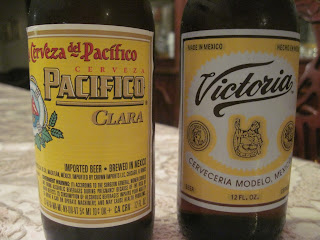This week's Sunday Night Suds looks at New Belgium's Citradelic- Tangerine IPA.
A few days ago I walked into a Target and while browsing for some Fiber One snacks, I wandered through the beer aisle (OK, I intentionally perused the beer aisle) and saw something that I was not expecting - New Belgium!
I had never (officially) seen New Belgium products for sale in New York (a certain Suffolk County beer store has been known to stock some out of state beers in special mix cases, but that's another story), so this was quite a shock for me. The beer was on a shelf which did not even list New Belgium so I asked a stock clerk and she told me that it had just come in that day.
I took the beer home and chilled it before trying some with char-grilled chicken and meat as part of our Friday Night dinner. The beer poured a light copper with nice carbonation and some lacing. The first sip was some pine and citrus with a little added tartness from the orange peel and orange that was added to the brew process. The beer is not a classic IPA as you can taste the additives, but they are not cloyingly sweet and work nicely with the finished product.
New Belgium Citradelic Tangerine IPA is under the Kosher Supervision of the Scroll-K of Colorado. Although the beer does not bear the kosher symbol on the label, the Scroll-K kosher symbol can be found on the bottom of the six pack holder.
Please note that not every brew produced by New Belgium is under kosher supervision. For a list of the New Belgium brews currently under supervision, please click on the link on the left side of my home page for my latest Kosher Beer List.
To see what the experts on Beer Advocate think about New Belgium Citradelic Tangerine IPA, please follow this link beeradvocate.com/beer/profile/192/197183. As always, please remember to drink responsibly and to never waste good beer unless there is no designated driver.
If you've tried this beer or any others which have been reviewed on the kosher beers site, please feel free to post your comments (anonymous comments are acceptable).
If you are reading this post more than six months after it was written, please note that it is possible that the product is no longer still certified kosher. To verify that the product is still certified kosher, please click on the kosher beers list link on the top left corner of the blog.
If you have seen this post being carried on another site, please feel free to click www.kosherbeers.blogspot.com to find other articles on the kosherbeers blogsite. Hey its free and you can push my counter numbers up!





